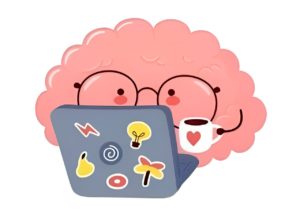- Home
- /
- Lifestyle
- /
- Efficiency
- /
- How to keep high...
Energy is an essential component of our daily lives, as it provides us with the physical and mental capacity to carry out various tasks and activities. Unfortunately, many people struggle with low energy levels, which can be caused by various factors such as poor diet, lack of exercise, stress, and inadequate sleep. In this article, we will explore some strategies how to increase level of energy in the human body.
- Eat balanced food for high level of energy
- Stay hydrated for productivity and high level of energy
- Exercise regularly for high level of energy
- Get enough sleep to be energetic
- Manage stress to provide high level of energy
- Provide the body with necessary vitamins for high level of energy
- Limit alcohol and tobacco use to be full of energy
Eat balanced food for high level of energy
The food we consume provides our bodies with the nutrients necessary for optimal function, including energy production. Eating a balanced diet that includes a variety of fruits, vegetables, whole grains, lean proteins, and healthy fats can help maintain stable blood sugar levels, which in turn can reduce fatigue and provide sustained energy throughout the day. Avoiding highly processed foods, sugary snacks, and excessive caffeine can also help stabilize energy levels.
While sugar can provide a quick burst of energy, consuming too much sugar can actually decrease energy levels in the long run. This is because sugar causes a rapid spike in blood sugar levels, followed by a rapid drop, which can lead to feelings of fatigue and lethargy.
When we consume sugar, our bodies release insulin, which helps transport sugar from the bloodstream into our cells for energy. However, when we consume large amounts of sugar, our bodies can become overwhelmed, and insulin may not be able to keep up. This can lead to high blood sugar levels, which can damage blood vessels and lead to a range of health problems, including diabetes and heart disease.
In addition to the long-term health effects, consuming too much sugar can also have immediate effects on energy levels. When blood sugar levels spike, the body produces a large amount of insulin to help bring them back down. This rapid drop in blood sugar levels can lead to feelings of fatigue and lethargy, also known as a “sugar crash.”
Furthermore, sugar can also disrupt sleep patterns, which can contribute to feelings of fatigue and decreased energy levels. When we consume sugar, it can lead to a release of the hormone cortisol, which can disrupt our natural sleep patterns and cause us to feel less rested.
Stay hydrated for productivity and high level of energy
Dehydration can cause fatigue, headaches, and decreased cognitive function, among other symptoms. Drinking plenty of water throughout the day can help prevent dehydration and maintain adequate energy levels. The Institute of Medicine recommends drinking at least 8 cups of water per day, but individual needs may vary based on factors such as activity level, climate, and overall health status.
- Maintains Fluid Balance: Water is essential for maintaining fluid balance in the body. When we become dehydrated, our blood volume decreases, making it harder for the heart to pump blood and transport oxygen and nutrients to the body’s cells. This can lead to fatigue and decreased energy levels. By staying hydrated with water, we can help maintain fluid balance in the body and reduce the risk of fatigue.
- Helps Remove Toxins: Water helps to remove toxins from the body, which can contribute to fatigue. When we are dehydrated, the kidneys have a harder time removing waste products from the body. This can lead to a build-up of toxins in the body, which can cause fatigue and other symptoms. By drinking enough water, we can help flush out toxins and reduce the risk of fatigue.
- Improves Blood Circulation: Water helps to improve blood circulation, which can help reduce the risk of fatigue. When we are dehydrated, blood becomes thicker and harder to circulate. This can lead to decreased oxygen and nutrient delivery to the body’s cells, causing fatigue. By staying hydrated with water, we can help improve blood circulation and reduce the risk of fatigue.
Exercise regularly for high level of energy
Regular physical activity is essential for maintaining optimal health and energy levels. Exercise increases blood flow and oxygen to the muscles, helping to reduce fatigue and increase energy levels. Additionally, exercise can help reduce stress and improve mood, both of which can contribute to increased energy levels.
Just Get moving: Even a quick walk around the block or a few jumping jacks can help increase blood flow and oxygen to the body, helping to reduce fatigue and increase energy levels.
Get enough sleep to be energetic
Inadequate sleep is a common cause of low energy levels. Adults should aim for 7-9 hours of sleep per night, and children and adolescents may require more. Establishing a consistent sleep schedule, avoiding screen time before bed, and creating a comfortable sleep environment can all help improve sleep quality and increase energy levels.
Manage stress to provide high level of energy
Chronic stress can lead to fatigue and decreased energy levels. Practicing stress management techniques such as deep breathing, meditation, and yoga can help reduce stress and increase energy levels. Additionally, engaging in enjoyable activities and social support can also help reduce stress and increase energy levels.
Practice deep breathing: Taking a few deep breaths can help reduce stress and anxiety, which can drain energy levels. It can also increase oxygen levels in the body, helping to increase energy levels.
Mindfulness meditation involves focusing your attention on the present moment and accepting your thoughts and feelings without judgment. Practicing mindfulness regularly has been shown to reduce stress, improve mood, and increase feelings of wellbeing.
As for nutrients Magnesium has been shown to have a calming effect on the nervous system and can help reduce feelings of anxiety and stress.
When we experience stress, our bodies release hormones such as cortisol, which can cause physical and emotional tension. Magnesium works to counteract this by regulating the release of cortisol and promoting relaxation. It does this by binding to GABA receptors in the brain, which are responsible for promoting relaxation and reducing anxiety.
Studies have shown that magnesium supplementation can help reduce symptoms of anxiety and improve mood. One study found that magnesium supplementation reduced symptoms of anxiety in adults with generalized anxiety disorder, while another study found that magnesium supplementation improved symptoms of depression in elderly patients.
Magnesium is also important for sleep quality, which can play a significant role in managing stress. Magnesium helps regulate the body’s circadian rhythm, which is the internal clock that controls sleep-wake cycles. By promoting relaxation and improving sleep quality, magnesium can help reduce feelings of stress and anxiety.
Unfortunately, many people are deficient in magnesium, and this deficiency can contribute to feelings of stress and anxiety. Some dietary sources of magnesium include leafy green vegetables, nuts and seeds, whole grains, and legumes. However, it can be challenging to get enough magnesium from food alone, and many people choose to supplement with magnesium to ensure adequate intake.
Provide the body with necessary vitamins for high level of energy
Certain vitamins and minerals are essential for energy production in the body. Iron, for example, is necessary for transporting oxygen to the cells, and deficiency can lead to fatigue and decreased energy levels. B vitamins, including thiamine, riboflavin, and niacin, are also involved in energy production and may help increase energy levels when consumed in adequate amounts. Additionally, adequate levels of vitamin D and magnesium may also help improve energy levels.
For example, there is a theory that Vitamin D3 plays an important role in maintaining level of energy, but its impact is not fully understood. While some studies have suggested that vitamin D3 supplementation may help improve energy levels, others have not found a significant effect.
Additionally, vitamin D3 has been shown to play a role in regulating mood and reducing symptoms of depression, which can also contribute to increased energy levels. Low mood and depression can often lead to fatigue and decreased motivation, so addressing these issues may help improve energy levels as well.
While more research is needed to fully understand the impact of vitamin D3 on energy levels, maintaining adequate levels of vitamin D3 through a healthy diet or supplementation is important for overall health and wellbeing. It is always recommended to consult with a healthcare professional before starting any new supplement regimen.
Limit alcohol and tobacco use to be full of energy
Excessive alcohol consumption and tobacco use can both lead to decreased energy levels and fatigue. Limiting or avoiding these substances can help improve overall health and energy levels.
Alcohol is a depressant drug that can reduce energy levels in several ways. When consumed, alcohol is rapidly absorbed into the bloodstream and travels to the brain, where it affects the central nervous system.
One of the ways that alcohol reduces energy levels is by causing dehydration. Alcohol is a diuretic, meaning it increases urine production and can lead to dehydration. Dehydration can cause fatigue, weakness, and decreased energy levels.
Alcohol can also disrupt sleep patterns, leading to poor quality sleep and decreased energy levels the next day. While alcohol may initially make you feel drowsy or relaxed, it can interfere with the deeper stages of sleep, resulting in less restful sleep. This can lead to feelings of tiredness, lethargy, and reduced energy levels the following day.
Alcohol can also affect the body’s ability to absorb and utilize nutrients, including essential vitamins and minerals. This can lead to deficiencies that can cause fatigue and decreased energy levels. For example, alcohol can interfere with the absorption of B vitamins, which are essential for energy production in the body.
Additionally, alcohol can interfere with the body’s ability to produce glucose, which is the body’s primary source of energy. This can lead to low blood sugar levels and feelings of fatigue, weakness, and decreased energy levels.
Finally, excessive alcohol consumption can also lead to long-term health problems, such as liver disease, heart disease, and cancer, which can cause fatigue and decreased energy levels as the body struggles to cope with the damage caused by alcohol.
In conclusion, increasing energy levels in the human body requires a multifaceted approach that includes proper nutrition, hydration, exercise, sleep, stress management, and adequate vitamin and mineral intake. While individual needs may vary based on factors such as age, gender, and health status, implementing these strategies can help increase energy levels and improve overall health and wellbeing.
































































0 Comments